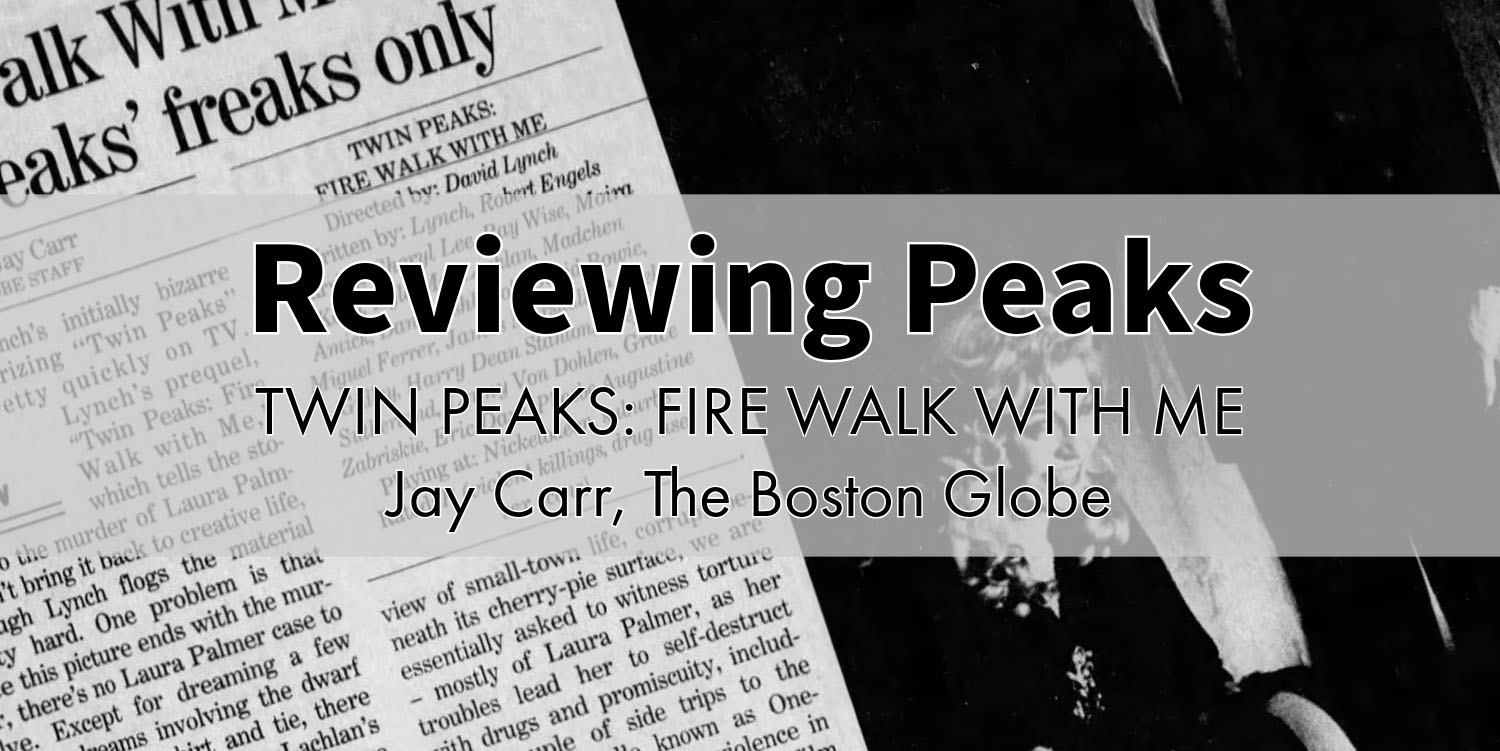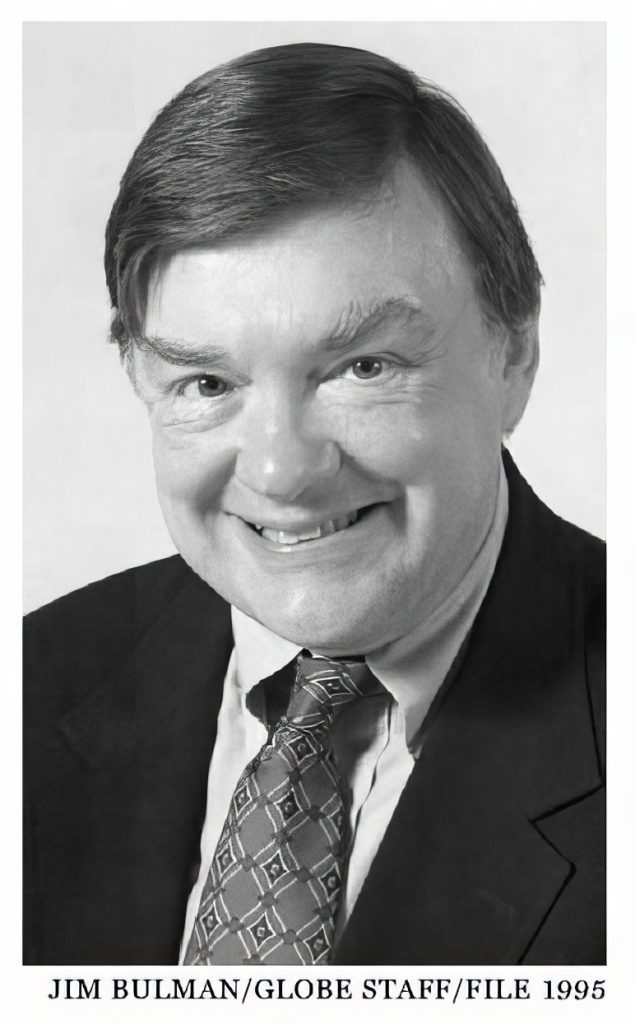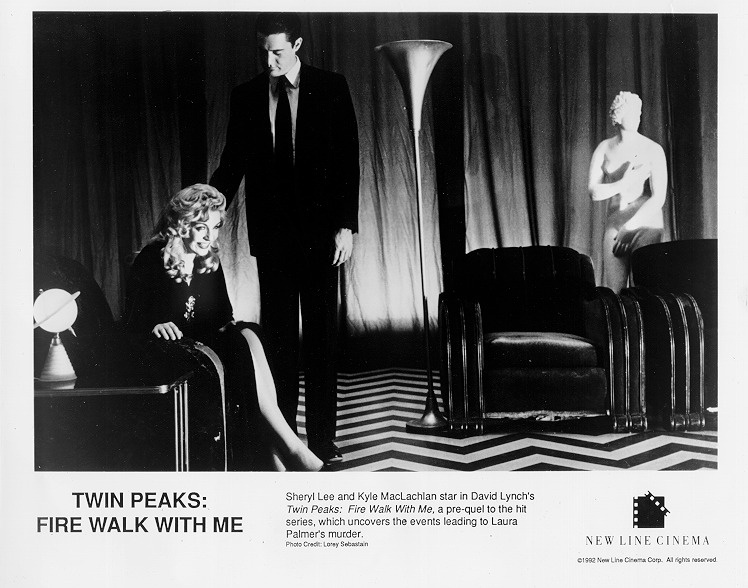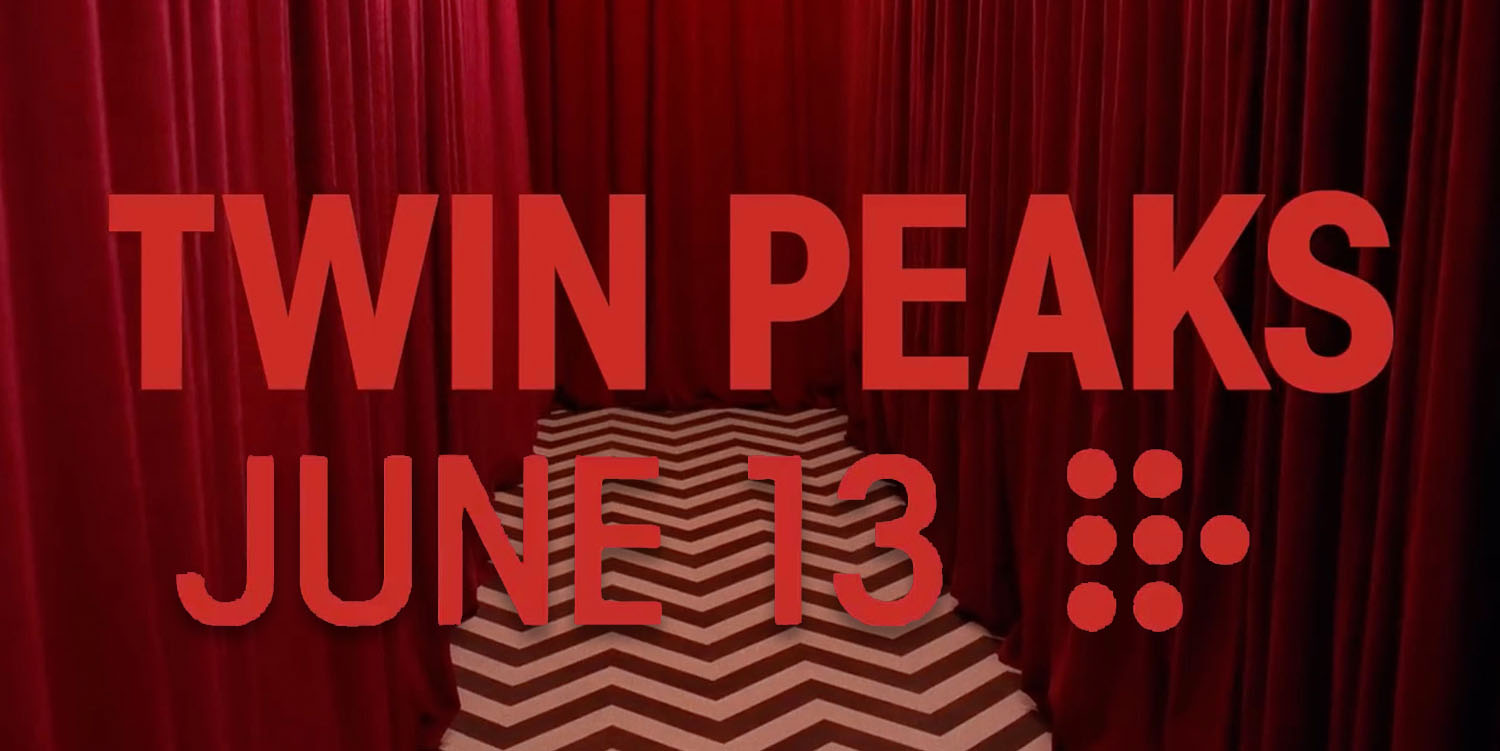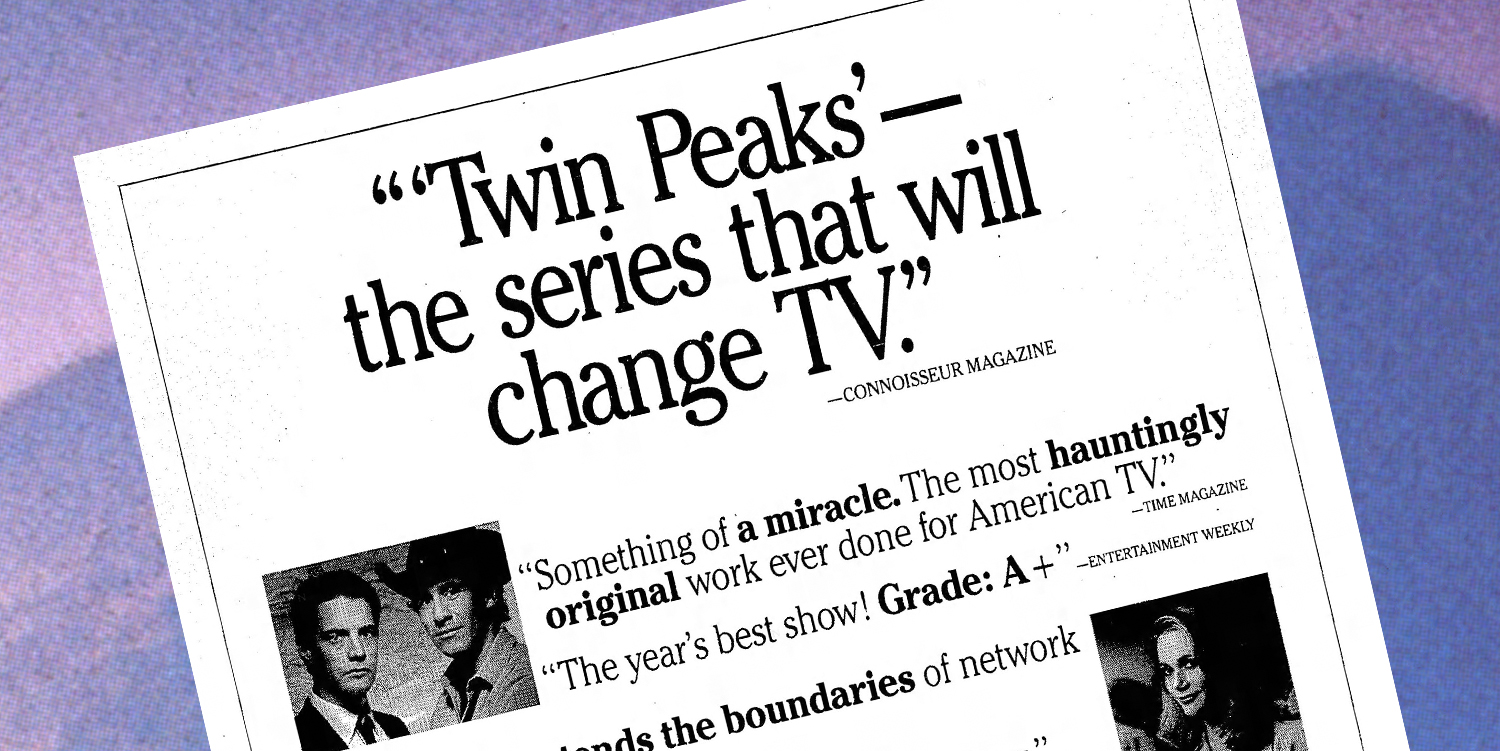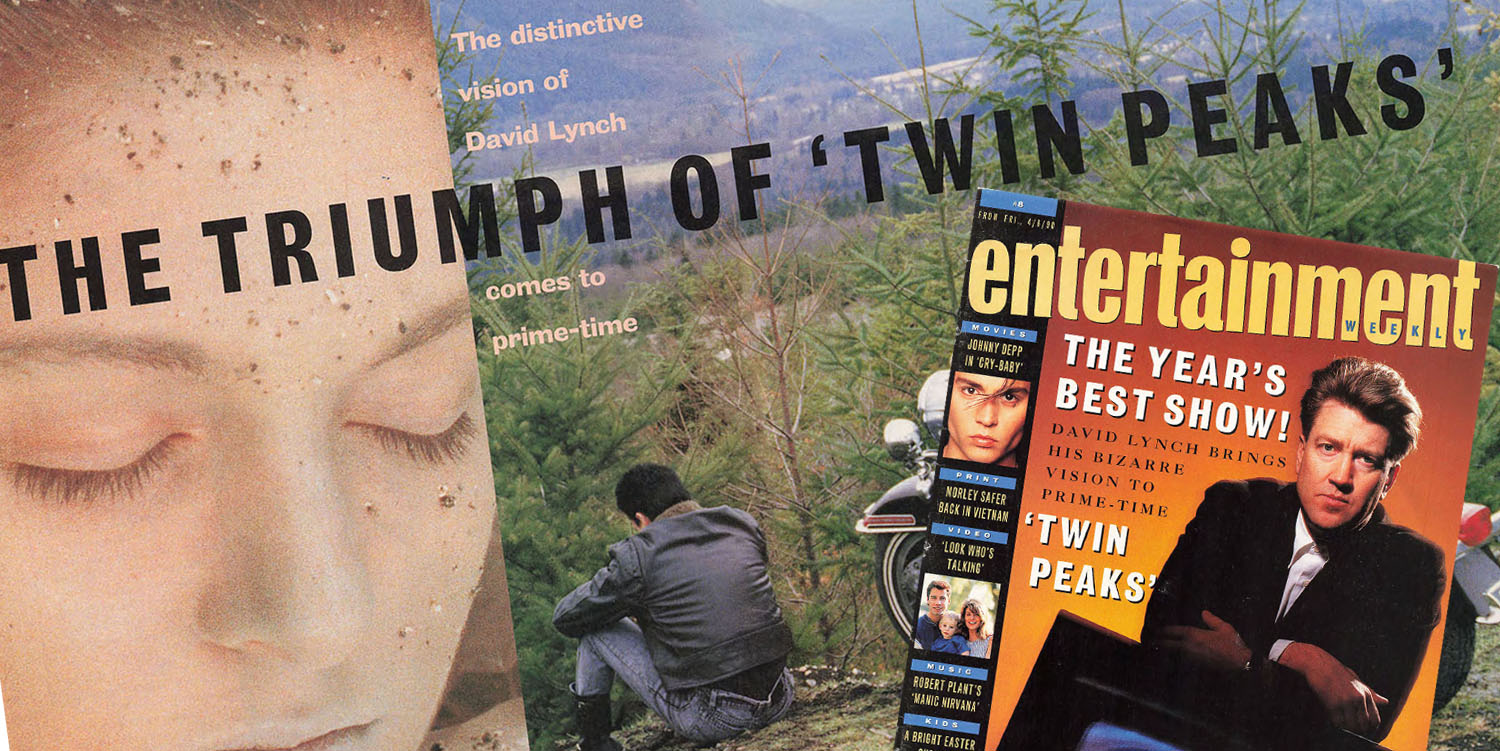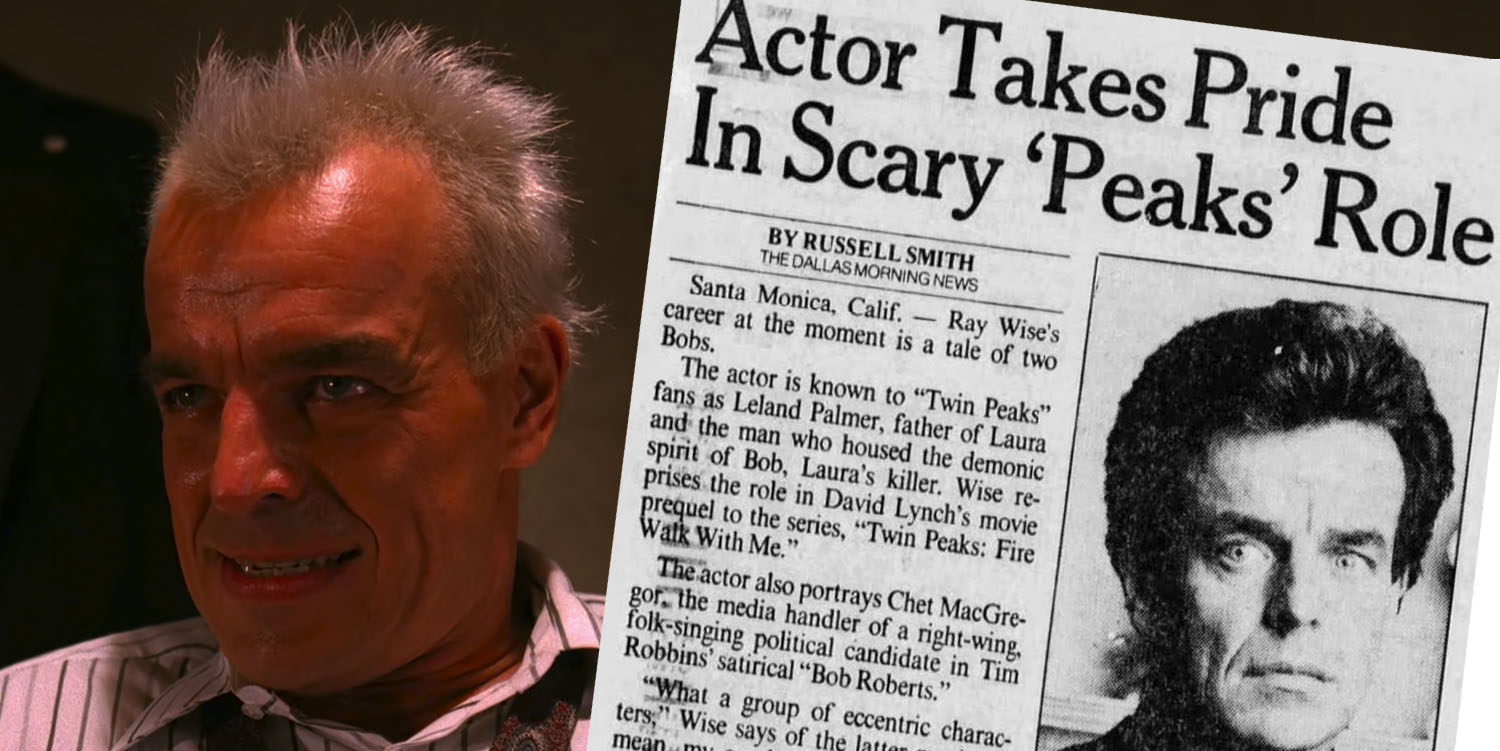As another anniversary descends for David Lynch’s Twin Peaks: Fire Walk With Me, I’m returning to a series I launched two years ago titled “Reviewing Peaks.” In this series, I examine reviews of the 1992 film which several critics originally panned. This time, the late film critic for The Boston Globe, Jay Carr, offers his review of the film which he called a “downer” and “only the most dedicated and compulsive ‘Twin Peaks’ freaks will want to sit through it.” Sounds like my kind of film!
JAY CARR FROM THE BOSTON GLOBE
The late Jay Carr served as The Boston Globe’s chief film critic from 1983 through 2002. Graduating from the Bronx High School of Science and obtaining a bachelor’s degree in chemistry from City College of New York, Carr began his newspaper career as a police reporter with the Jersey City Journal. He was drafted into the Army and spent two years stationed in Kentucky. Before moving to Boston, Carr worked at the New York Post and the Detroit News where he reviewed movies, theatre and classical music.
The Boston Globe first courted Carr to be their television critic but the job didn’t work out. When a film critic role opened, he moved to Boston with his collection of 200,000 vinyl albums and tens of thousands of books. Carr loved writing and, for nearly 20 years, he averaged a byline nearly every day of the week.
According to Tom Meek, president of the Boston Society of Film Critics in a May 19, 2014 Boston Globe obituary, Carr “made the language of film accessible to all with warm, avuncular prose … Jay always looked for the touching human aspect in a film, an attribute he embodied in his life as well.”
Mr. Carr hosted a “Screening Room” program on New England Cable News and wrote reviews for Turner Classic Movies. When he retired in 2002, Jay had reviewed approximately 10,000 films during his 45-year newspaper career. He died on May 13, 2014 at the age of 77 in his Somerville, Massachusetts home.
REVIEWING THE TWIN PEAKS PILOT
Mr. Carr’s review of David Lynch’s feature film was not the first time he was introduced to the wonderful and strange world of Twin Peaks.

Jay Carr attended the Telluride Film Festival in September 1989 where the Twin Peaks pilot episode was screened. In a brief mention, he called the 90-minute episode a “diluted version of Blue Velvet” and that Special Agent Dale Cooper was “the creepiest FBI man you’ve ever seen.”
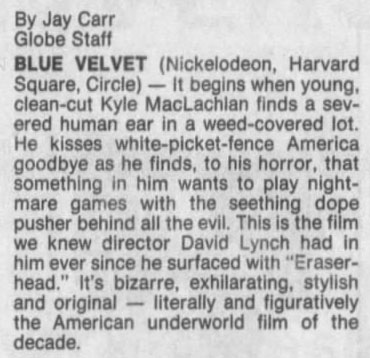
As an aside, he loved Blue Velvet calling it “bizarre, exhilarating, stylish and original – literally and figuratively the American underworld film of the decade.”
JAY CARR’S REVIEW OF TWIN PEAKS: FIRE WALK WITH ME
Carr published his review on August 29, 1992, one day after the U.S. release of the film. You may recall New Line Cinema did not hold press screenings of the film, most likely due to the perceived negative response from the Cannes Film Festival debut on May 16, 1992. We know now that fans who attended the French film festival applauded and cheered Lynch, but the initial newspaper articles that spread like wildfire said people “booed.”
Either way, this prompted Sandra Ruch, New Line Cinema’s president of marketing, to “try unorthodox strategies to create a ‘must-see, event-like atmosphere” for its films. The company “maintained a tight lid on the film as part of a marketing plan designed to heighten the ‘mystery, mystique and element of surprise’ that drove the ‘Twin Peaks’ phenomenon in the first place.” She denied that the company was afraid of negative reviews.
Those unorthodox tactics included happy hours and a celebrity party sans screening at McCormick and Schmick’s in downtown Los Angeles, California.
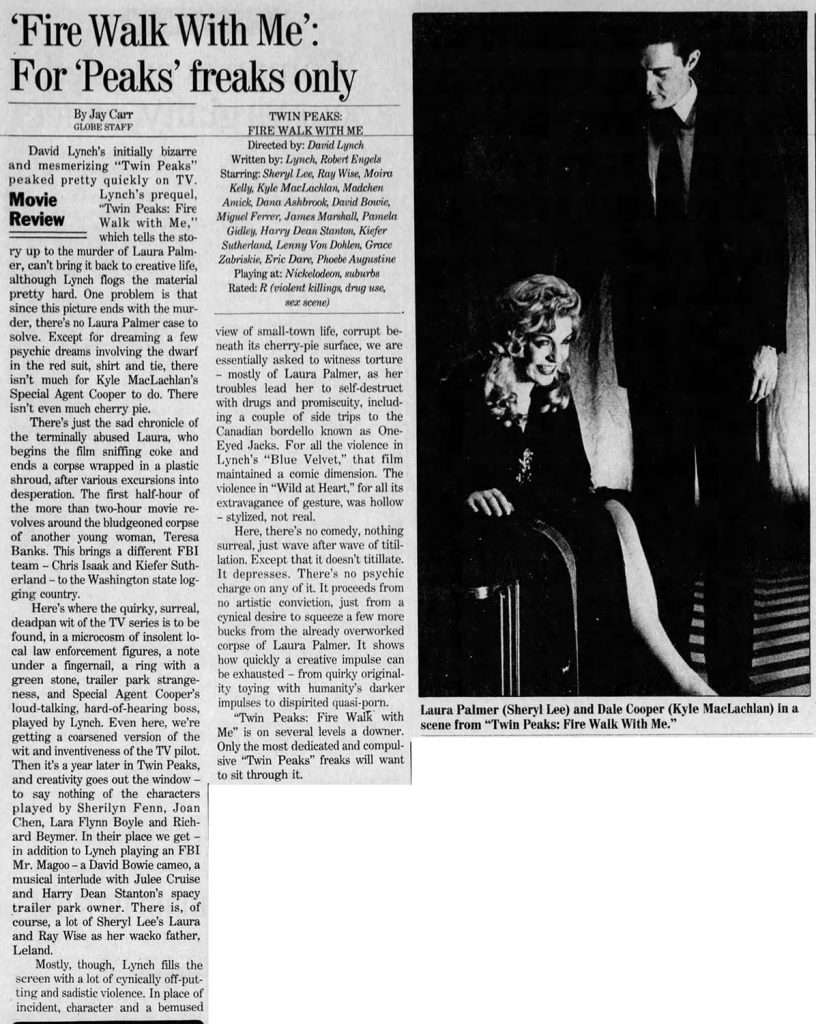
Titled, “‘Fire Walk With Me’: For ‘Peaks’ freaks only,” Carr briefly recapped the film while lamenting how the movie was nothing like the television series.
“Here, there’s no comedy, nothing surreal, just wave after wave of titillation,” penned Carr. “Except that it doesn’t titillate. It depresses. There’s no psychic charge on any of it. It proceeds from no artistic conviction, just from a cynical desire to squeeze a few more bunch from the already overworked corpse of Laura Palmer.”
Wow! Those are strong words from someone’s article who bullies Twin Peaks fans by calling them “freaks.” I’m working on a different story about how fans of the show have been put down for decades by the reporters and critics all because “freaks” rhymes with “peaks.”
The article’s image is a cropped shot of a publicity photo by the late Lorey Sebastian with Laura Palmer and Special Agent Dale Cooper in the Red Room.
Anyway, Carr clearly didn’t like the film and only felt Lynch filled “the screen with a lot of cynically off-putting and sadistic violence.” He felt the small-town life featured in the show were replaced with torture, mostly of Laura Palmer. No mention of Sheryl Lee’s incredibly moving performance or Ray Wise’s dynamic range of emotion. He did appear to enjoy the Deer Meadow scenes with Chris Isaak and Kiefer Sutherland as he felt is was most like the television series.
It’s difficult to know if he ever revisited Lynch’s film as I’ve not found any follow up review. It’s unfortunate he focused only on the violence and failed to see the deeper and darker meaning of a young woman in trouble.
OTHER REVIEWS OF DAVID LYNCH’S FILMS BY JAY CARR
Did Jay Carr enjoy other works by David Lynch? Yes! As mentioned, he was stunned by the original Blue Velvet.
For Lost Highway, Carr wrote in a February 28, 1997 review that Lynch “seems to have mastered a visual vocabulary all his own, only to find he now has nothing much to say.”
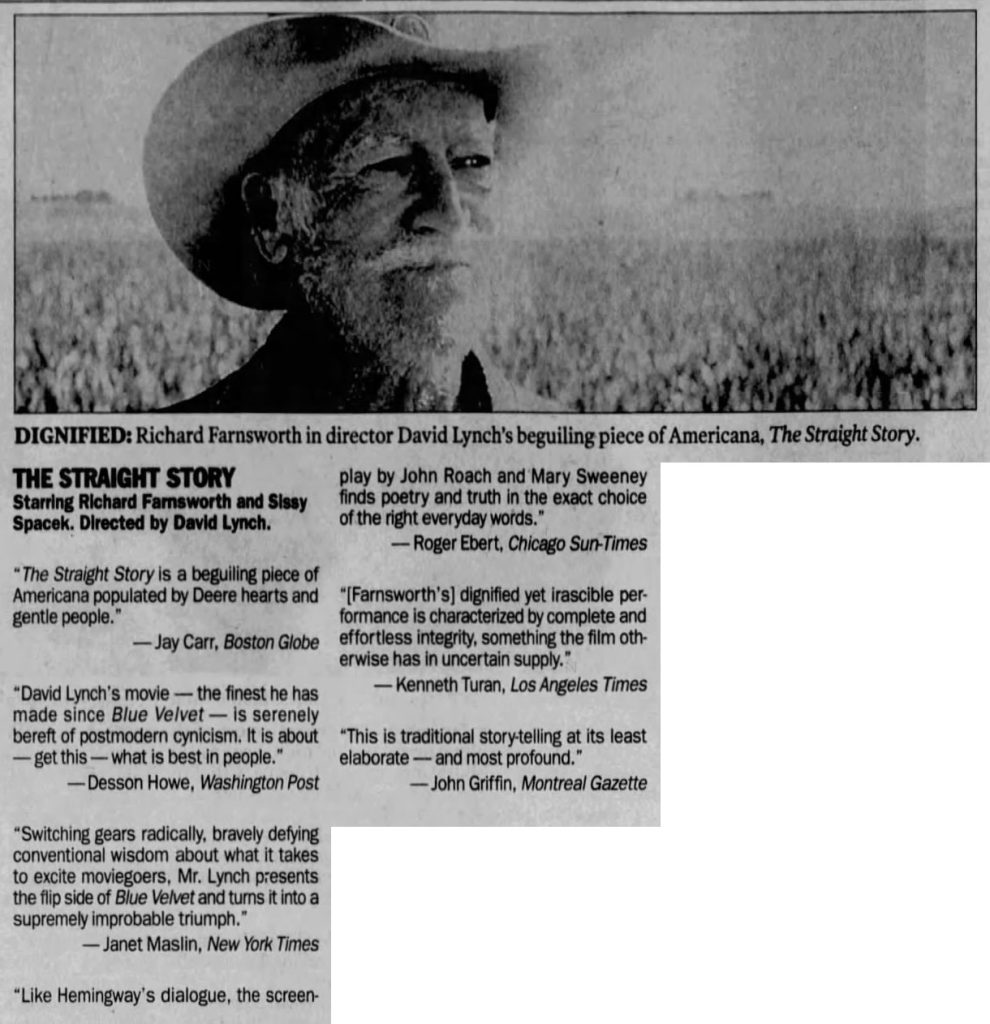
Carr said, “The Straight Story is a beguiling piece of Americana populated by Deere hearts of gentle people.” Personally, it may be one of Lynch’s finest films.
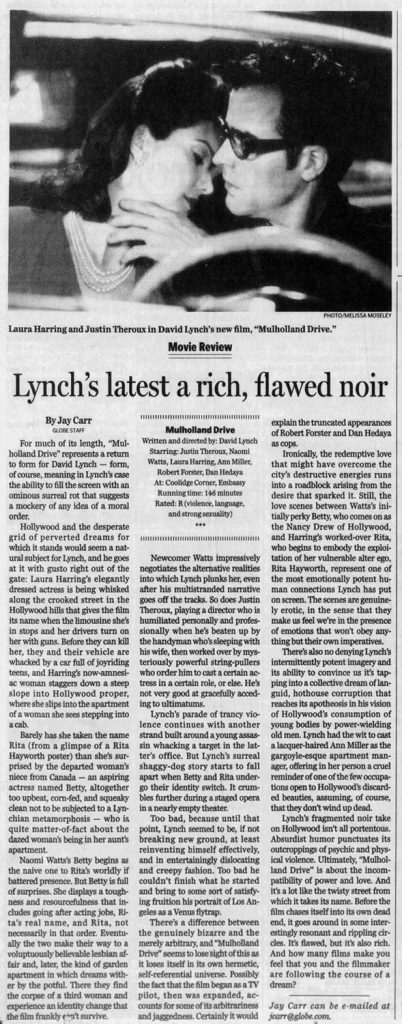
For Mulholland Drive, Carr felt the film was “flawed but also rich.” He wondered how many films make audiences feel that they and the filmmaker are following the course of a dream?
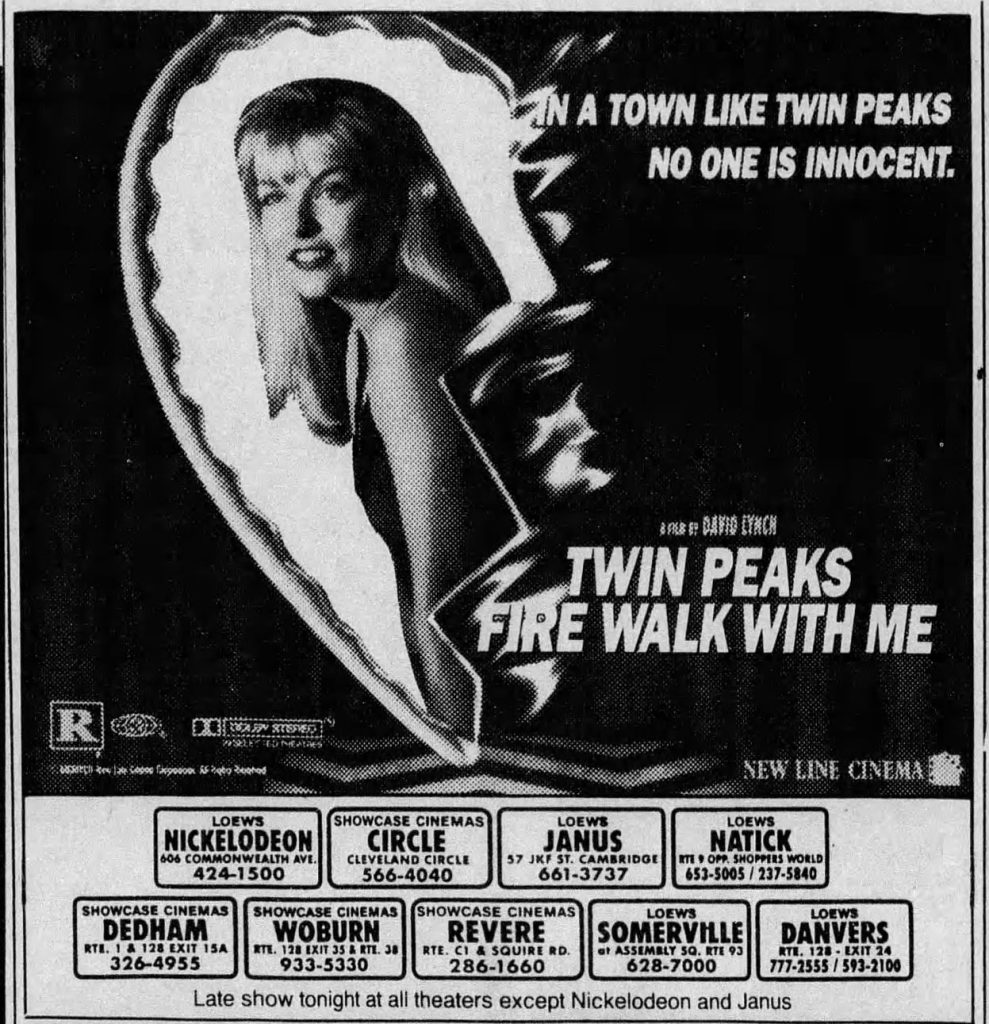
While Jay Carr may not have enjoyed David Lynch’s film when initially released, the story of the last seven days of Laura Palmer has resonated with numerous fans (or “freaks”) ever since the blue flickering light of the opening credits flashed on screen.
Discover more from TWIN PEAKS BLOG
Subscribe to get the latest posts sent to your email.

